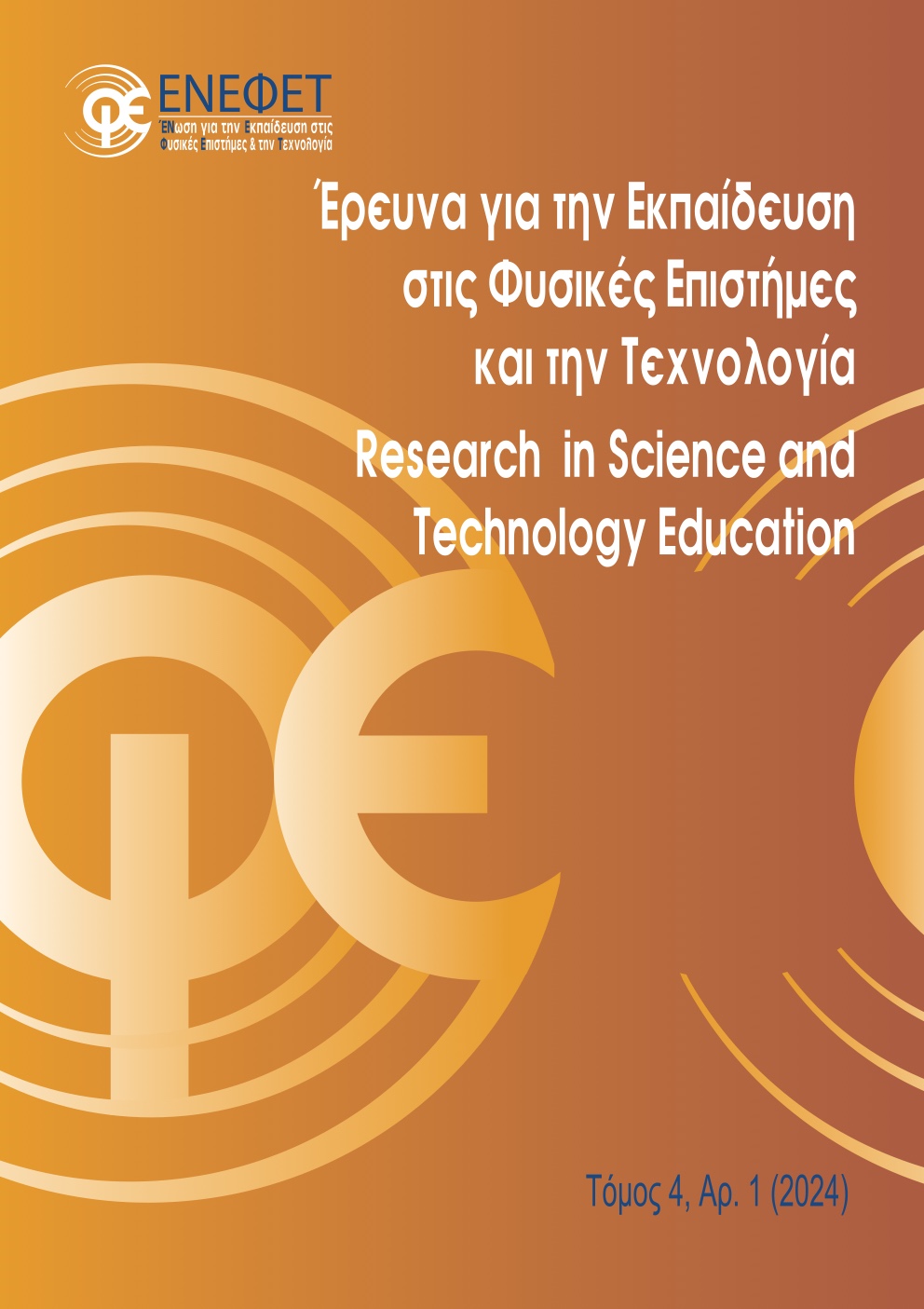Μια Διδακτική Παρέμβαση για την Ενίσχυση της Συμμετοχής των Μαθητών στη Μάθηση της Έννοιας της Ενέργειας

Περίληψη
Η παρούσα εργασία παρουσιάζει μια παρέμβαση που είχε στόχο την ενίσχυση της συμμετοχής των μαθητών στη μάθηση της έννοιας της ενέργειας και την επίτευξη επιθυμητών μαθησιακών αποτελεσμάτων. Η παρέμβαση περιλάμβανε ειδικά σχεδιασμένες δραστηριότητες και στρατηγικές διδασκαλίας και εφαρμόστηκε σε 110 μαθητές γυμνασίου (πειραματική ομάδα) έναντι μιας ομάδας ελέγχου 96 μαθητών. Μετά την εφαρμογή, στους μαθητές και των δύο ομάδων δόθηκε ένα ερωτηματολόγιο αυτοαναφοράς για τη μέτρηση της συμμετοχής. Για την αξιολόγηση των μαθησιακών αποτελεσμάτων των μαθητών χορηγήθηκε και στις δύο ομάδες ένα γραπτό ερωτηματολόγιο αποτελούμενο από ερωτήσεις ανοιχτού τύπου. Οι αναλύσεις δεδομένων έδειξαν σημαντικά υψηλότερα επίπεδα συμμετοχής και καλύτερα μαθησιακά αποτελέσματα μεταξύ των μαθητών της πειραματικής ομάδας σε σύγκριση με αυτούς της ομάδας ελέγχου. Επιπλέον, βρέθηκε μια σημαντική θετική συσχέτιση μεταξύ της συμμετοχής και της ακαδημαϊκής επιτυχίας. Αυτή η μελέτη επιβεβαιώνει τις απόψεις άλλων ερευνητών όπου τα υψηλά επίπεδα συμμετοχής συνδέονται με την απόκτηση γνώσεων και δεξιοτήτων, που με τη σειρά τους οδηγούν σε θετικά ακαδημαϊκά αποτελέσματα.
Λεπτομέρειες άρθρου
- Πώς να δημιουργήσετε Αναφορές
-
Τόλη Γ., & Καλλέρη Μ. (2024). Μια Διδακτική Παρέμβαση για την Ενίσχυση της Συμμετοχής των Μαθητών στη Μάθηση της Έννοιας της Ενέργειας. Έρευνα για την Εκπαίδευση στις Φυσικές Επιστήμες και την Τεχνολογία, 4(1), 29–63. https://doi.org/10.12681/riste.37364
- Ενότητα
- Άρθρο Ερευνητικό
Οι συγγραφείς διατηρούν τα πνευματικά δικαιώματα και παρέχουν στο περιοδικό το δικαίωμα της πρώτης δημοσίευσης μαζί με την αδειοδότηση της εργασίας με CC-BY-NC-SA, που επιτρέπει σε άλλους να μοιράζονται αυτή την εργασία με αναγνώριση του συγγραφικού δικαιώματος και την αρχική δημοσίευση σε αυτό το περιοδικό.


